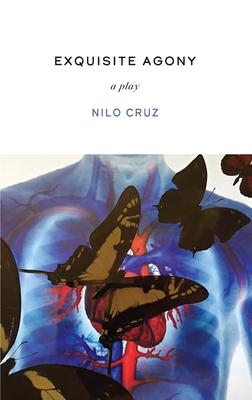"Beautifully strange... An opera star with a penchant for dramatic sorrow shows up at a doctor's office, looking for her husband's heart. Someone got it when he died--which means that somewhere, inside another person's rib cage, a piece of her husband lives on... Thus begins a tantalizing correspondence in Nilo Cruz's Exquisite Agony, a play about the human heart: its fumblings and yearnings, its bruises and scars, its generosity and viciousness." --Laura Collins-Hughes, New York Times
"Exquisite Agony is about a woman who finds life in death, in an atmosphere where poetic insights are the norm and women are the center. Cruz's feminist view is one of the liberating aspects of his writing, as is a kind of magical realism that is not cloying but true to his characters, and to the fact of dispossession: sometimes we don't know who we are because we don't know where life has landed on our bodies, let alone in our hearts." --Hilton Als, New Yorker
"Exquisite Agony is explosive... As in several of Cruz's previous works, drama ignites from the friction between the banal and the magical." --Zachary Stewart, TheaterMania
"Exquisite Agony entertains and enraptures... There's rueful humor, Chekhovian reveries, and a sense of the mystical... Ravishing on all levels." --Darryl Reilly, TheatreScene.net
Nilo Cruz is a Cuban-American playwright and director, and the first Latino to win the Pulitzer Prize for Drama, for his play Anna in the Tropics. His other plays include Sotto Voce, Beauty of the Father, Two Sisters and a Piano, Lorca in a Green Dress, Dancing on Her Knees, and Night Train to Bolina.
